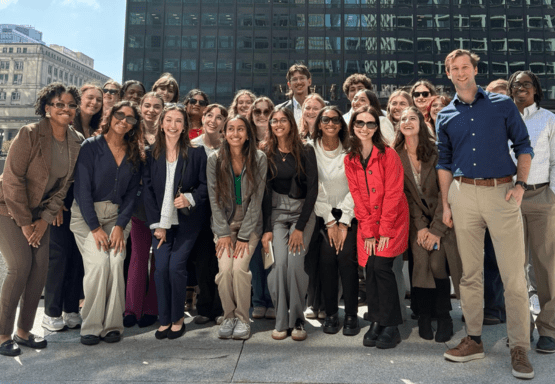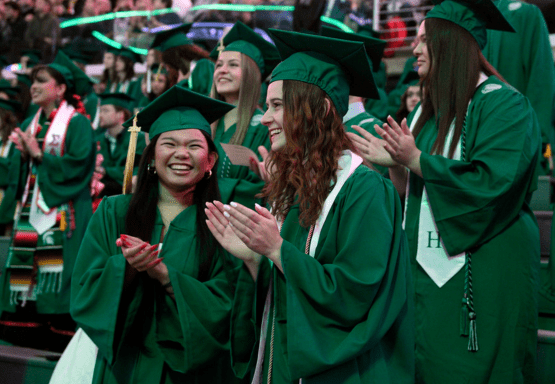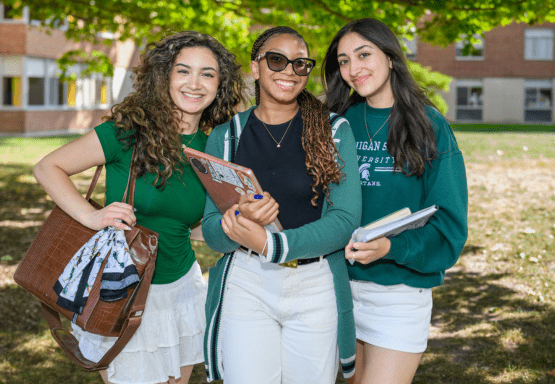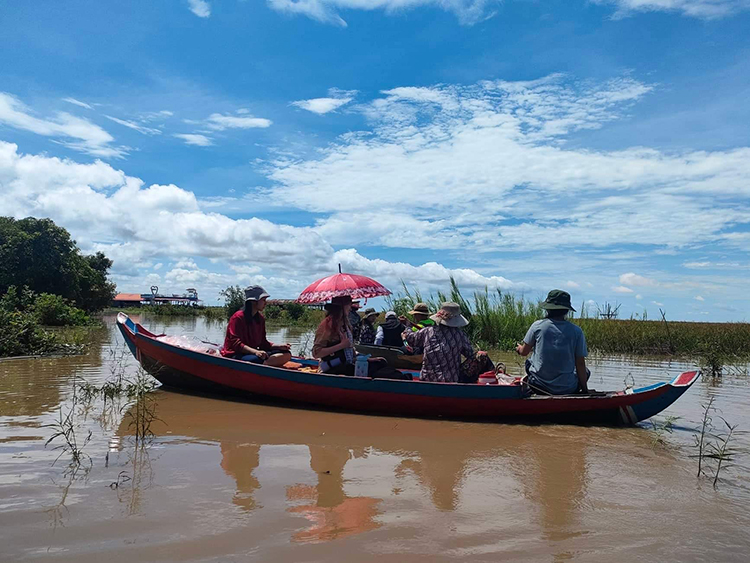
Katie Chamberlin (she/her) is a junior studying Comparative Cultures and Politics with a minor in Science, Technology, Environment and Public Policy.
Shimon Likhtman (he/him) recently graduated with a B.A. in Social Relations and Policy with a minor in Science, Technology, Environment, and Public Policy this past May. Currently, he is pursuing a master’s in public health and a master’s in Southeast Asian Studies at the University of Michigan.
In the summer of 2020, we both joined Mekong Culture WELL, an initiative at MSU to address the changing landscapes and livelihoods of the people of the Lower Mekong River Basin and further develop Southeast Asian studies.

Katie:
I was an incoming freshman looking for ways to get involved on campus. I have an interest in research, environmental justice and climate change, so when I saw a Facebook post advertising an opportunity to become involved in MCW, it piqued my interest.
Shimon:
I found my way to Mekong Culture WELL the summer before my junior year while working as a research assistant for Dr. Siddharth Chandra, who knew about my interest in Southeast Asia as I’d been helping him with a research project related to Indonesia. He tipped me off about MCW after picking up on my interest in human relationships to rivers and, after attending the first info session, I decided to join.
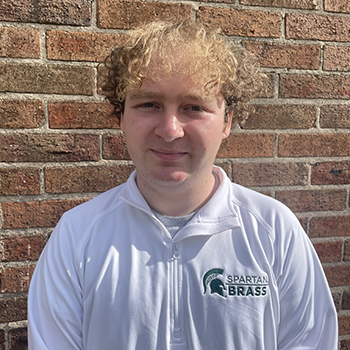
We both began studying Khmer, which is the primary language spoken in Cambodia, during fall of 2020 with the intention of traveling to Cambodia in the near future. The opportunity finally arrived this past summer when we were given the chance to participate in a “field school” run by the Center for Khmer Studies on the Tonle Sap lake, the largest freshwater lake in Southeast Asia.
The field school was essentially an intensive course in how to study social and environmental issues. We started in Siem Reap, where we participated in a two-day workshop covering theoretical models of human-environment interactions and the critical issues on the Tonle Sap, including ethnic tensions and the decline of fisheries. Then, we departed for the field.
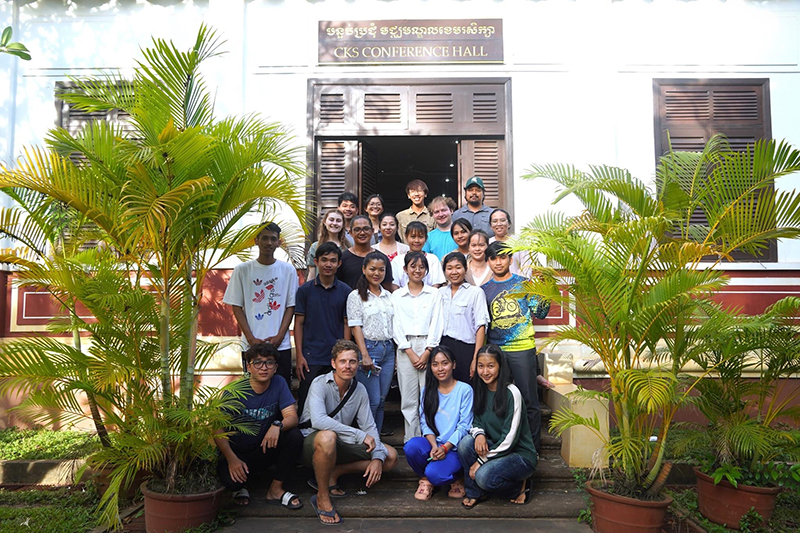
We were based in Chong Kneas and Kampong Phluk, two villages on the Tonle Sap where fishing is a key part of people’s livelihoods. Residing on houseboats on the lake, we spent four days conducting interviews with area residents, both those who lived on the water and those who lived on land, in order to gain an understanding of how political, ecological and climate change was affecting their livelihoods.
What really set the experience apart from other education abroad programs was the unique set of challenges that come with working in the field, and there were quite a few of them. Having to sleep in a hammock or on a sleeping pad under a mosquito net was difficult at times, and every day began at 4 a.m. with the deafening roar of boat motors as fishers went out on the lake to begin their daily work.
The field school pushed us out of our comfort zones. After only one day in the field, we were broken up into small groups and told to go find people to interview on our own. This was difficult because not only was there a perceived lack of trust, we also had to figure out how to ask extremely sensitive questions. This was exacerbated by language barriers. Having only two years of Khmer instruction under our belts, we had to rely on our Cambodian colleagues assist with interviews.
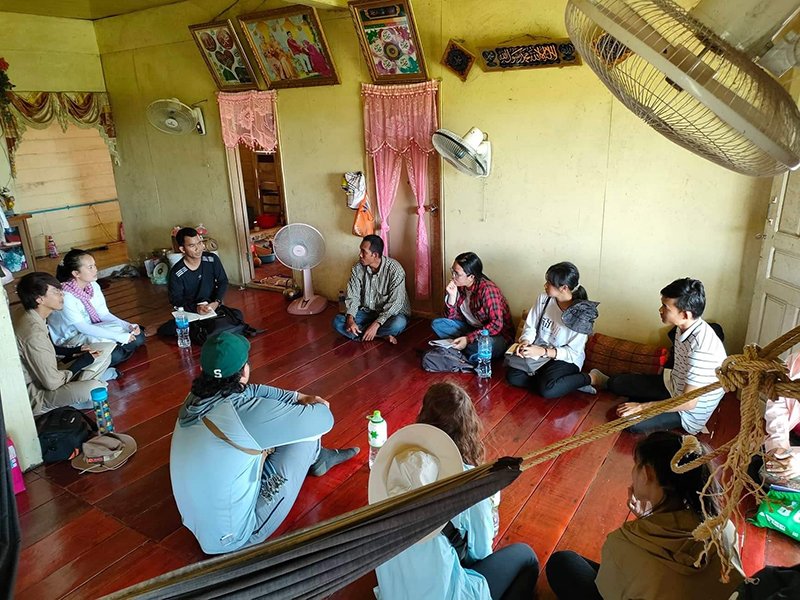
The interviews themselves were emotionally draining. Day after day, we would hear about the hardships people endured just trying to survive. One particularly heavy conversation was with an ethnic Vietnamese yiay (grandmother) in Chong Kneas. We asked her why she thinks the fish stocks are declining. She replied that she didn’t know why, but she would really like to know.
Her response was telling of the lack of educational opportunities, racism and subsequent isolation of ethnic Vietnamese in the village. It contrasted sharply with villagers’ responses in the majority-Khmer Kampong Phluk, who would cite dam construction, overfishing and even climate change. Many ethnic Vietnamese have been denied access to this knowledge, further inhibiting their capacity to empower themselves.
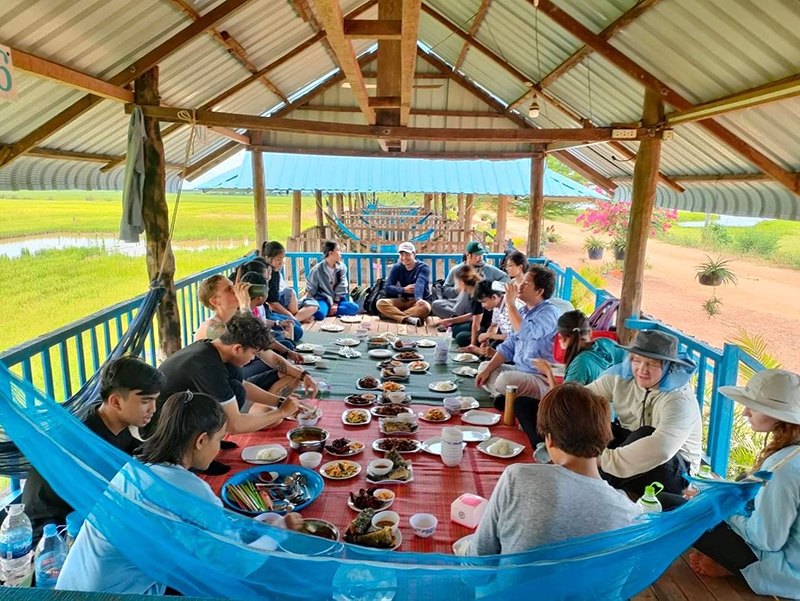
The conversations we had and the obstacles we encountered as we tried to decipher peoples’ stories and impressions pushed us to learn in new and different ways. Conducting field research as undergraduate students has been so rewarding as it has further aided in helping us identify how we pursue our future studies, career development and, most importantly, it has given us soft skills that will serve us in all aspects of life.
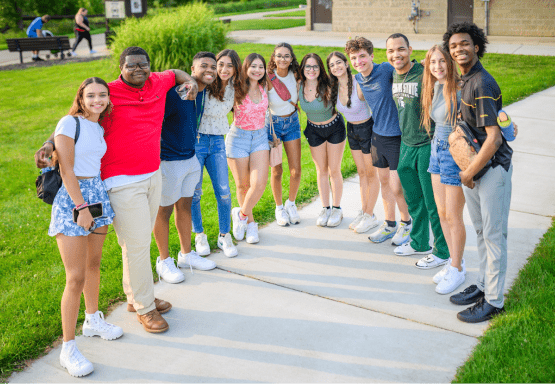
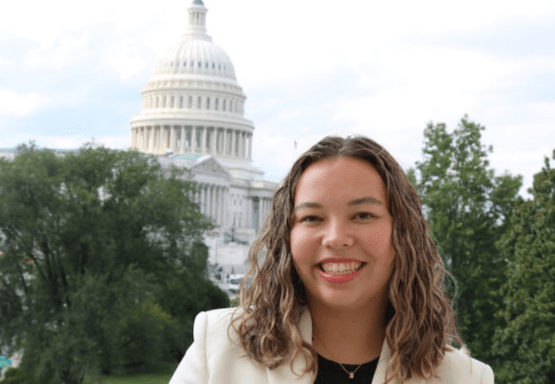
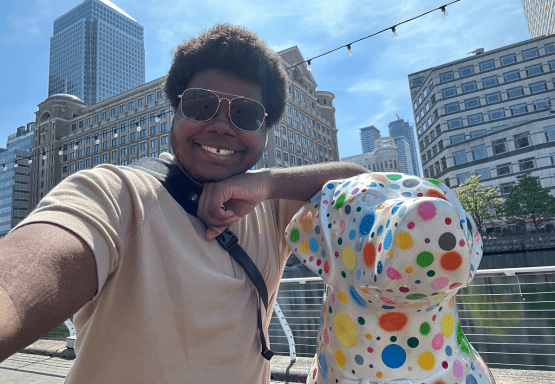
.png?h=384&iar=0&w=555)
